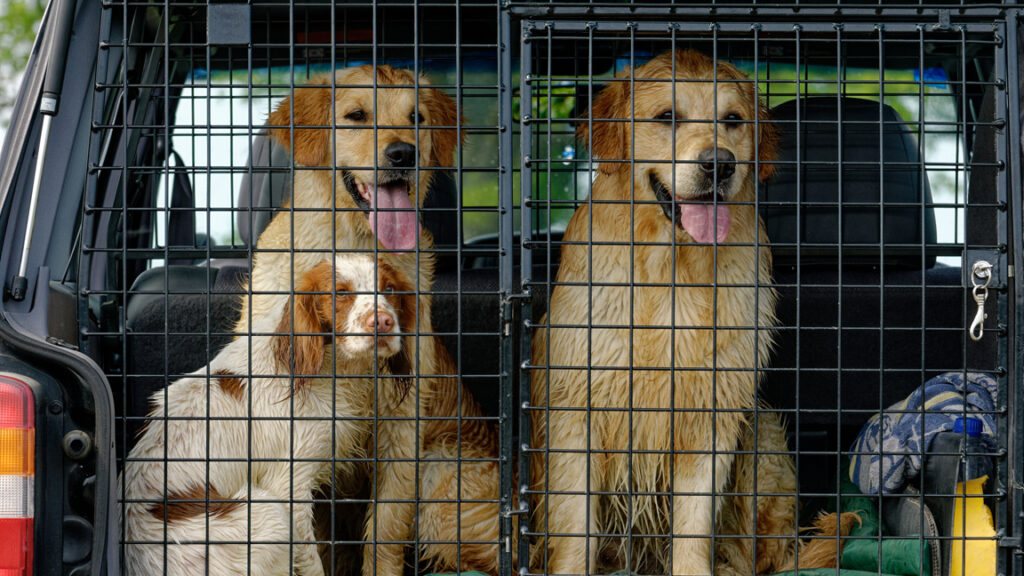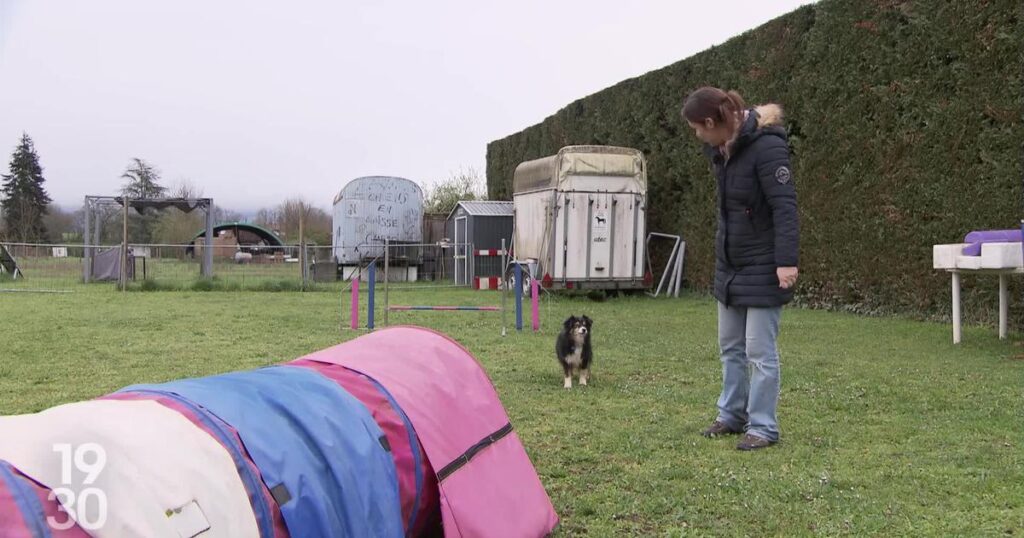

Pregnant dogs deserve special attention to ensure a healthy pregnancy and the birth of healthy puppies. If you own a pregnant dog or are considering getting one, it is essential to prepare adequately. We'll explain it to you.
Signs of canine pregnancy
The first step in preparing your dog for motherhood is recognizing the early signs of pregnancy. This will allow appropriate measures to be taken from the start of the pregnancy.
Early signs of pregnancy
Bitches may show subtle signs of pregnancy in the first few days after breeding. Common signs include changes in behavior, increased appetite, and physical changes. However, these signs can vary from one dog to another, so it is essential to remain attentive to her behavior.
How to confirm your dog's pregnancy ?
If you suspect your dog is pregnant, it is essential to confirm the pregnancy. Methods to confirm pregnancy include visits to the veterinarian and canine pregnancy tests.
How long does pregnancy last in dogs?
The length of gestation in dogs varies depending on the breed and the number of puppies expected. Learn how to calculate your due date and plan accordingly.
Good preparation for motherhood…
Now that the pregnancy is confirmed, we must think about preparing for motherhood. It is essential to create a comfortable and secure environment for your dog and her future puppies.
Creating a comfortable space for birthing
The pregnant dog will need a quiet, clean and secure place to give birth. Choose a basket or a comfortable mattress (futon type or with a few blankets), isolated from noise and too much vision.
Selection of necessary supplies
It is important to have all the essential equipment and supplies for birthing. This includes preparing the farrowing box or purchasing suitable litter.
How to properly feed your pregnant dog?
A pregnant dog's nutrition plays a crucial role in the development of her puppies. During pregnancy, the female dog will have increased nutritional needs. Thus, certain foods are more suitable for pregnant dogs than others:
- Quality Commercial Food: High-quality dog foods formulated specifically for pregnant dogs are a convenient option. They are designed to provide essential nutrients needed during gestation.
- Wet food: Canned or wet food can be a great source of hydration for your pregnant dog. Make sure you choose a quality option that contains high-quality protein.
- High-quality protein: Opt for foods rich in high-quality protein, such as chicken, turkey, fish or lean meat. Protein is essential for growing puppies.
- High-Fat Foods: Foods containing healthy fats, such as fish oil or coconut oil, can help maintain the health of your female dog's skin and coat and support puppy development.
- Foods Rich in Calcium and Phosphorus: Make sure the diet contains an adequate ratio of calcium and phosphorus, which is essential for puppy bone formation. However, avoid calcium supplements, as too much can cause health problems.
- Fiber and Carbohydrates: Fiber and carbohydrates from sources such as brown rice or oats can help maintain a healthy digestive system in your pregnant dog.
- Fractional feeding: divide your pregnant dog's meals into several small portions throughout the day to avoid digestive problems and to facilitate the absorption of nutrients.
In addition to a balanced diet, your dog may need food supplements to meet her nutritional needs.
What health care should be provided?
When a female dog is pregnant, monitoring her health is of utmost importance. Proper health care helps ensure a healthy pregnancy and the birth of vigorous puppies.
Veterinary visits during pregnancy
Regular visits to the veterinarian are crucial throughout pregnancy. The veterinarian will be able to monitor the progress of the pregnancy and detect any potential problems. Here's what these visits typically involve:
- Physical Exam: The veterinarian will examine the dog to check her general health, litter size, and growth of the puppies.
- Ultrasound: An ultrasound helps confirm the pregnancy, count the number of puppies and monitor their development.
- Checking Vaccinations: Make sure your dog's vaccinations are up to date. The veterinarian can recommend boosters if necessary.
- Stool analysis: a stool analysis can check for the presence of internal parasites and prescribe treatment if necessary.
- Nutritional Advice: Your veterinarian will provide you with specific dietary recommendations during pregnancy and lactation.
Vaccinations and deworming : should we go there?
Vaccinations and parasite prevention are essential for the health of a pregnant dog and her unborn puppies. First, it is essential to ensure that the dog is properly vaccinated before pregnancy. Vaccines such as those against distemper, parvovirus and kennel cough are particularly important.
However, it is generally recommended not to administer vaccines during gestation unless absolutely necessary, as this can cause adverse reactions in the mother.
After birth, the dog's vaccinations can be updated to ensure the puppies receive passive immunity through mother's milk.
Internal parasites, such as intestinal worms, can affect the health of the female dog and her puppies. Before gestation, regular deworming should be carried out. However, during pregnancy, the use of dewormers should be supervised by a veterinarian, as some products may be harmful to developing puppies.
Prevention of possible complications
During gestation, it is essential to be vigilant for any signs of complications and to act quickly if necessary. Here are some of the potential complications to look out for:
- Eclampsia (milk fever): Eclampsia is a condition where the female dog becomes deficient in calcium, which can be life-threatening. Signs include restlessness, tremors, seizures and rapid breathing. If you notice these symptoms, consult your veterinarian immediately.
- Dystocia (difficulty giving birth): Some female dogs may have difficulty giving birth, which can put the mother and puppies at risk. Signs of dystocia include prolonged whelping, ineffective contractions, and signs of distress in the female dog.
- Infections: Uterine infections can occur during gestation or after giving birth. Watch for signs of infection such as fever, foul-smelling discharge, lethargy, or loss of appetite.
Preparing for motherhood for a pregnant dog is a crucial step in ensuring the health and well-being of your dog and her puppies. By following the tips and steps we've detailed in this article, you'll be better prepared to welcome this new litter successfully. Don't forget that veterinary monitoring and a suitable diet are the most important actions for a good pregnancy.
TO KNOW
Pregnant dogs have a sense of smell that becomes even more acute during pregnancy. These often develop an increased sensitivity to smells, which can make them more reactive to the different scents around them. This increased sense of smell may be linked to hormonal changes occurring during gestation.






